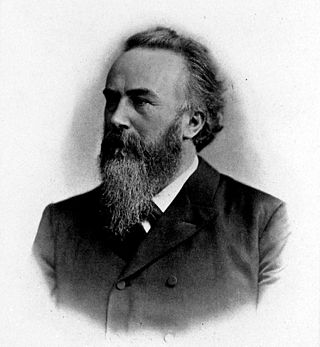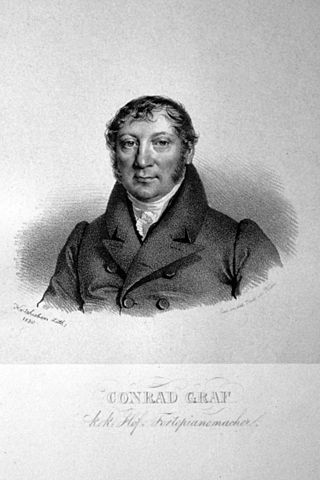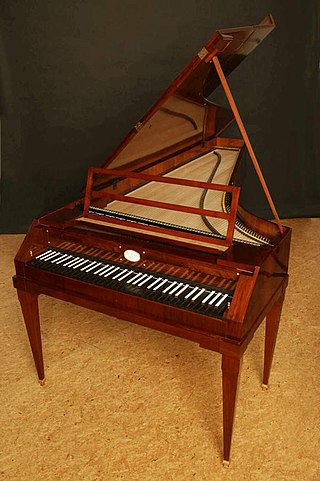Friedrich Ehrbar | |
|---|---|
| Born | 1827 |
| Died | 1905 (aged 77–78) |
| Occupation | Manufacturer |


Friedrich Ehrbar was a piano manufacturer in Vienna, Austria.
Friedrich Ehrbar | |
|---|---|
| Born | 1827 |
| Died | 1905 (aged 77–78) |
| Occupation | Manufacturer |


Friedrich Ehrbar was a piano manufacturer in Vienna, Austria.
Friedrich Ehrbar (1827-1905) took over the company in 1857 after the passing of Eduard Seuffert (1819-1855). In 1876 he had the Palais Ehrbar with its own concert hall constructed, in which renowned artists such as Johannes Brahms, Anton Bruckner and Gustav Mahler performed. For the excellence of his products he was awarded an imperial and royal warrant of appointment to the Emperor and King of Austria-Hungary. He was also awarded a warrant of appointment to Archduke Otto, imperial warrant of appointment to the Ottoman Sultan, a royal warrant of appointment to the King of Greece, the King of Serbia, the King of Portugal, and many others.
His successor was Friedrich Benedict Ernst Ehrbar Jun. (1873-1921), who was also president of the Wiener Singakademie from 1900 until his death. He was also awarded an imperial and royal warrant of appointment to the Emperor and King of Austria-Hungary. [1]
Recordings made with instruments by Ehrbar

Joseph Joachim was a Hungarian violinist, conductor, composer and teacher who made an international career, based in Hanover and Berlin. A close collaborator of Johannes Brahms, he is widely regarded as one of the most significant violinists of the 19th century.

Julius Blüthner Pianofortefabrik GmbH is a piano-manufacturing company in Leipzig, Germany. Composers who used Blüthner include Brahms, Debussy, Wagner, Strauss, Tchaikovsky, Rachmaninoff, and the Beatles among others.

Bösendorfer is an Austrian piano manufacturer and, since 2008, a wholly owned subsidiary of Yamaha Corporation. Bösendorfer is unusual in that it produces 97- and 92-key models in addition to instruments with standard 88-key keyboards.
The F-A-E Sonata, a four-movement work for violin and piano, is a collaborative musical work by three composers: Robert Schumann, the young Johannes Brahms, and Schumann's pupil Albert Dietrich. It was composed in Düsseldorf in October 1853.

Philippe Maria François Herreweghe, Knight Herreweghe is a Belgian conductor and choirmaster.

Julius August Philipp Spitta was a German music historian and musicologist best known for his 1873 biography of Johann Sebastian Bach.
Dorothea Röschmann is a German soprano. She is famous for her performances in operas by Mozart as well as Lieder.

Marlis Petersen is a German operatic coloratura soprano.

Conrad Graf was an Austrian-German piano maker. His pianos were used by Beethoven, Schubert, Chopin, and Robert and Clara Schumann, among others.

Johann Baptist Streicher was an Austrian piano maker that comes from a dynasty piano builders. The tradition began with Johann Streicher's grandfather, Johann Andreas Stein, who was a central figure in the history of the piano. No less remarkable of figures in this dynasty, though, were his parents. Nannette Streicher, his mother, assumed charge of her father's business in 1792 and set up a piano making company in Vienna. Initially, she was working together with her husband Andreas Streicher and her 16-year-old younger brother Matthias Andreas Stein (1776-1842) under the business name Geschwister Stein. After 10 years, the siblings decided to part ways, and Nannette Streicher continued building pianos under her own name. She was also one of the closest friends of Beethoven and even agreed in August 1817 to help her friend by managing his chaotic household, while the composer was going through one of the many crises that marked his life.

Jozef De Beenhouwer is a Belgian pianist, music teacher and musicologist.

Christian Gerhaher is a German baritone and bass singer in opera and concert, particularly known as a Lieder singer.
Gerold Huber is a German classical pianist, best known as the regular duo partner of baritone Christian Gerhaher and accompanist of other singers.

Paul McNulty is a builder of historical pianos, described by the New Grove as "famous for the high standard of [his] instruments." Within the community of builders, McNulty is noted for his efforts to extend the production of historically informed instruments later into history: while he has built many fortepianos in 18th-century style, he has also progressively sought to span the gap between the fortepiano and the fully modern piano that emerged around the last third of the 19th century. The expanding diversity of McNulty's productions has thus helped "provide an opportunity to extend keyboard performing practice to include the piano repertory of the 19th century".
Werner Güra is a German classical tenor in opera, concert and Lied, also an academic teacher in Zurich.

Isabelle Faust is a German violinist who has worked internationally as a soloist and chamber musician. She has received multiple awards.
Christoph Berner is an Austrian classical pianist.
Karl Rönisch is a piano manufacturer in Dresden, Germany.

The Abegg Trio was a German piano trio. Since its foundation in 1976, it played in the original line-up.

"Wiegenlied", Op. 49, No. 4, is a lied for voice and piano by Johannes Brahms which was first published in 1868. It is one of the composer's most famous pieces.
![]() Media related to Friedrich Ehrbar at Wikimedia Commons
Media related to Friedrich Ehrbar at Wikimedia Commons